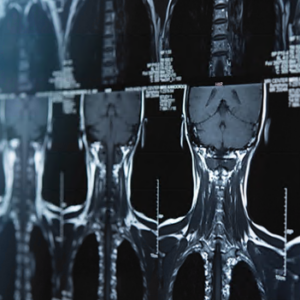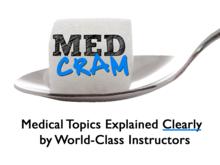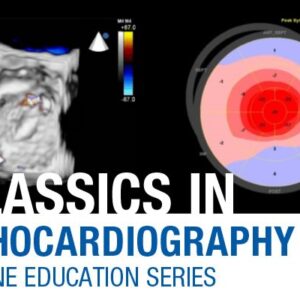ACG Postgraduate Course 2021
Saturday, October 23, 2021
Session 1A: Easing the Esophageal Enigma
Moderator: Nicholas J. Shaheen, MD, MPH, MACG
- Esophageal Motility Disorders: Taming the Tube?
Rena H. Yadlapati, MD, MSHS
Provide an overview of esophageal motility disorders, with recommendations for updated management in 2021. - EoE – To Dilate or To Medicate?
Evan S. Dellon, MD, MPH, FACG
Describe current management strategies for EoE, from dietary management to medications, with an algorithm for practice. - Barrett’s Esophagus – Burn, Freeze, or Observe? Dysplasia Update
Nicholas J. Shaheen, MD, MPH, MACG
Provide an overview of screening, surveillance, and treatment of Barrett’s in 2021. - Management of Reflux: Effective Use of PPIs and Beyond
Michael F. Vaezi, MD, PhD, MSc (Epi), FACG
Describe a practical approach to the diagnosis and management of reflux, plus the role of and risks/benefits of PPIs, as well as treatment duration recommendations, and management of PPI-refractory patients. - Panel Q & A
The David Sun Lecture – Colon Polyps: Going and Gone
Jerome D. Waye, MD, MACG
Introduced by: David A. Greenwald, MD, FACG, ACG President
Explain the history of colon polyps and what may happen in the future.
Session 1B: Colonoscopy Pearls – Optimizing the Yield
Moderator: Douglas K. Rex, MD, MACG
- Colorectal Cancer Screening and Surveillance – A Case-Based Approach and Guideline Review in 2021
Aasma Shaukat, MD, MPH, FACG
Provide an evidence-based approach for the practicing clinician on colon cancer screening and surveillance of polyps in 2021, including an update on the most recent ACG guidelines. - Optimal Polypectomy Techniques
Douglas K. Rex, MD, MACG
Identify best practices for visualization of polyps and for polypectomy to maximize completeness of resection. - Disparities in Colon Cancer Screening: How Do We Move the Needle?
Darrell M. Gray, II, MD, MPH, FACG
Assess ethnic/gender disparities in colon cancer screening and colon cancer outcomes, and implement a practical strategy for improved access to screening in practice. - Endoscopic and Non-Endoscopic Technologies for Colon Cancer Screening – What Lies Ahead of Us?
Mark B. Pochapin, MD, FACG
Review the recent and future technologies, both endoscopic and non-endoscopic, for colon cancer screening that will assist gastroenterologists now and in the future. - Panel Q & A
Session 1C: Pancreatic Disease 101
Moderator: Timothy B. Gardner, MD, MS, FACG
- Acute Pancreatitis – Common and Unusual Causes, and Optimal Management in 2021
Timothy B. Gardner, MD, MS, FACG
Review common and uncommon causes of acute pancreatitis, and optimal management based on current guidelines. - Pancreatic Cystic Lesions – When to Worry: Cases to Consider
Linda S. Lee, MD, FACG
Explain the different types of pancreatic cysts, their endoscopic, radiographic, and cytologic characteristics, and optimal management strategies. - Chronic Pancreatitis – Pearls in Pain Management
Darwin L. Conwell, MD, MS, FACG
Review the causes and natural history of chronic pancreatitis as well as best management strategies for treating chronic pain. - Panel Q & A
Simultaneous Symposia
Symposium A: Women’s Health in IBD
Moderator: Sunanda V. Kane, MD, MSPH, FACG
- Contraceptive and Pre-Conception Counseling in IBD by the Gastroenterologist
Marla C. Dubinsky, MD
Review contraceptive strategies for women with IBD, and appropriate pre-conception counseling from the gastroenterologist. - Management of IBD During Pregnancy: Implications for Mother and Baby
Sunanda V. Kane, MD, MSPH, FACG
Analyze strategies for management of IBD prior to, during, and post-pregnancy, including infant outcomes associated with advanced therapies. - Menopause and Beyond: The Older Adult With IBD
Bharati Kochar, MD, MSCR
Describe the physiologic changes with aging, the role of menopause in IBD, and considerations for management of the older adult with IBD. - Panel Q & A
Symposium B: A Focus on Clostridioides difficile
Moderator: Colleen R. Kelly, MD, FACG
- Management of C. diff: Update on ACG Guidelines
Colleen R. Kelly, MD, FACG
Provide an overview of the ACG guidelines for the management of C. difficile enterocolitis. - C. diff in IBD: When to Escalate or De-Escalate IBD Therapy
Jessica R. Allegretti, MD, MPH, FACG
Outline strategies for management of C. difficile in IBD patients, including management of their IBD therapies. - Evolving Probiotic, Antibiotic, and Designer Transplant Therapies – Optimizing the Microbiome
Paul Feuerstadt, MD, FACG
Describe utilization of fecal transplant in practice, including an algorithmic approach and a guide to discussing the risks and benefits and modalities available (including considerations during the COVID era) to describe novel microbiome-based therapeutics for C. difficile. - Panel Q & A
Symposium C: The Latest Frontiers of Endoscopy
Moderator: Christopher C. Thompson, MD, MSc, FACG
- ERCP – Tips for Difficult Cannulations/Special Populations
Shivangi T. Kothari, MD, FACG
Review the best practices for cannulation of the ampulla and approaches for special populations such as gastric bypass patients and pregnant patients. - POEM/ESD – Efficacy and Practicality: Cases to Behold
Christopher C. Thompson, MD, MSc, FACG
Review the role of POEM and ESD in the treatment of various GI luminal tract pathologies. - Endoscopic Management of Obesity
Allison R. Schulman, MD, MPH
Review the current state and evidence-based data of endoscopic obesity management. - Panel Q & A
Sunday, October 24, 2021
Session 2A: Hepatology 101
Moderator: Amit Singal, MD, MS
- HCC 101 – Screening, Surveillance, Treatment
Amit Singal, MD, MS
Identify best practices for diagnosis, management, and treatment for hepatocellular carcinoma, which continues to increase in incidence. - NAFLD/NASH – Optimizing Therapies for Maximal Benefit
Karen L. Krok, MD
Review the most effective management strategies to help mitigate NASH and prevent long-term sequelae, as well as review non-invasive diagnostic techniques for fibrosis. - DILI – What Did You Take? A Case-Based Approach
Naga P. Chalasani, MD, FACG
Review the most common causative agents of drug-induced liver injury, including CAM therapies and herbal supplements. - Cirrhosis 101: Important Pearls for the Management of the Inpatient and Outpatient Cirrhotic – A Case-Based Approach
Joseph Ahn, MD, MS, MBA, FACG
Apply optimal management strategies including algorithms to prevent and minimize long-term complications of cirrhosis such as HRS, variceal bleeding, SBP, and hepatoencephalopathy. - Panel Q & A
Session 2B: Practical Pearls for the Management of Inflammatory Bowel Disease – A Case-Based Approach
Moderator: Millie D. Long, MD, MPH, FACG
- The Naïve Crohn’s Disease Patient – A Case-Based Approach
Jill K. J. Gaidos, MD, FACG
Optimize initial therapies and management for the naïve Crohn’s disease patient, and identify which initial therapies are best for different CD phenotypes. - Ulcerative Colitis: Right Patient, Right Therapy
Corey A. Siegel, MD, MS
Describe risk stratification of patients with UC and positioning of therapies in moderate to severe UC. - Preventing IBD-Related Complications: Practical Advice
Millie D. Long, MD, MPH, FACG
Describe risks associated with medical therapies for IBD and practical recommendations for prevention. - Post-Operative Management of Crohn’s Disease: An Algorithm for Practice
Miguel D. Regueiro, MD, FACG
Apply evidence-based treatment approaches to the post-operative management of Crohn’s disease. - Therapeutic Drug Monitoring in IBD: Where Do We Stand?
David T. Rubin, MD, FACG
Describe a practical and evidence-based approach to TDM utilization in practice. - Panel Q & A
Session 2C: Functional Disorders in Practice
Moderator: William D. Chey, MD, FACG
- Functional Abdominal Pain: A Primer for the Gastroenterologist
Brian E. Lacy, MD, PhD, FACG
Describe the use of neuromodulators in clinical practice for the management of functional abdominal pain and irritable bowel syndrome. - Dietary Management of IBS: A Recipe for Success
William D. Chey, MD, FACG
Incorporate recommendations for dietary management of irritable bowel syndrome into the 15-minute office visit. - An Evidence-Based Algorithmic Approach for IBS-C and D
Lin Chang, MD, FACG
Provide an update on optimal management of IBS subtypes in 2021 and an algorithm for stepwise management in practice. - Panel Q & A
Simultaneous Symposia
Symposium D: Endoscopic Emergencies – A Case-Based Approach
Moderator: David A. Greenwald, MD, FACG
- Foreign Bodies – The 3AM Call
David A. Greenwald, MD, FACG
Outline tricks, techniques, and the latest technologies to help remove common and unusual ingested foreign objects. - Upper GI Bleeding – Non-Variceal Bleeding
Alan N. Barkun, MD, CM, MSc (Clin Epi), FACG
Review novel and best practices for the treatment of upper GI tract sources of bleeding. - Lower GI Bleeding – When Do You Scope versus Sleep?
Lisa L. Strate, MD, MPH, FACG
Describe the most recent evidence-based guidelines reviewing the role of urgent colonoscopic evaluation versus careful observation versus radiographic therapeutic approaches for lower gastrointestinal bleeding. - Panel Q & A
Symposium E: Anorectal Pathology – A Case-Based Approach
Moderator: Satish S. C. Rao, MD, PhD, FACG
- Recognizing and Treating HPV, AIN, and Anal Carcinoma
Jessica D. Korman, MD
Discuss the natural history of anal intraepithelial neoplasia, as well as which populations to screen and best practices for evaluation and treatment. - Diagnosing the Causes of Defecation Difficulties – Clinical Pearls
Satish S. C. Rao, MD, PhD, FACG
Review pelvic floor dyssynergia, and the diagnosis and treatment options for defecatory disorders. - Fissures, Fistulas, Hemorrhoids, Oh My!
Darren M. Brenner, MD, FACG
Explain the unusual but important pelvic pathologies that tend to cause significant patient discomfort but are often overlooked. - Panel Q & A
Symposium F: Conquering the Abyss: Small Bowel Pathologies, Enteropathies, and Other Rare Zebras That Should Be on Everyone’s List
Moderator: David J. Hass, MD, FACG
- Obscure Pathologies of the Small Bowel – A Case-Based Approach
David J. Hass, MD, FACG
Review common and uncommon pathologies of the small bowel, including bleeding, IBD, and small bowel neoplastic disease. - Managing Celiac and Other Enteropathies – A Case-Based Approach
Amy S. Oxentenko, MD, FACG
Review the diagnosis and management of celiac, refractory celiac, and other often overlooked enteropathies. - Zebras Worth Knowing – A Review of Unusual Diagnoses That Should Be in Every Gastroenterologist’s Differential
Lawrence J. Brandt, MD, MACG
Review unusual diagnoses that are not often considered but are high-yield and should be included in every gastroenterologist’s differential diagnosis. - Panel Q & A






